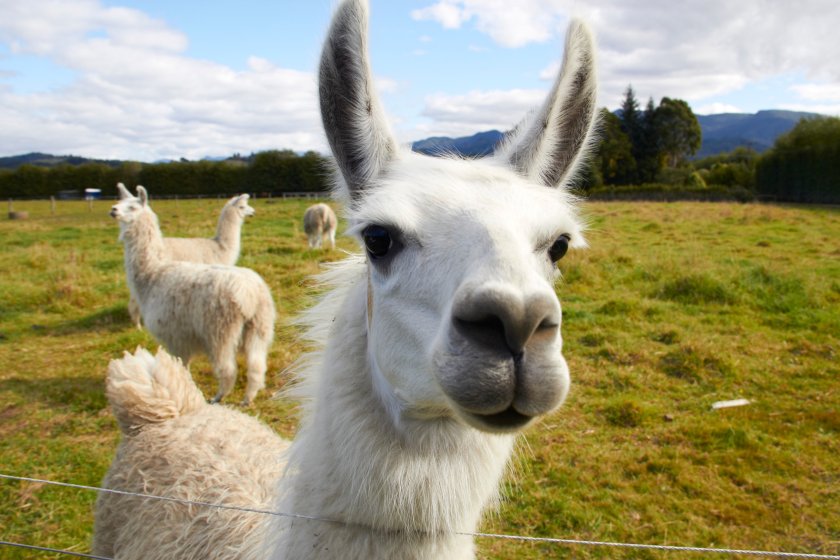
Scientists are researching whether grazing alpacas alongside other animals could help farmers tackle climate change.
The new research project will explore the efficiency and environmental benefits of grazing different species together, such as sheep, goats and alpacas.
It builds on previous research, which found that mixed grazing of sheep with cattle improved lamb growth rates and animal health, and cut emissions.
However, despite these benefits, cattle numbers in the uplands continue to decline, researchers at Aberystwyth University say.
The new study will focus on the unexplored potential of grazing sheep with less common species and related scope to improve pasture use efficiency and tackle climate change. Like cattle, these species have different grazing habits to sheep.
Feed trials for the research will begin this month to gather data on the comparative digestive efficiency of alpacas, goats and sheep on different forages and monitor their methane emissions.
This will be followed by grazing trials in the spring and summer of 2023 and 2024.
Professor Mariecia Fraser, from the university’s Institute of Biological, Environmental and Rural Sciences (IBERS), said alpacas have been overlooked as potential conservation grazers.
She said there could be an opportunity to include these alternative livestock species into future funding schemes.
"This project is looking at new ways of grazing these animals and how they could help tackle climate change," she said.
“Alpacas have adapted to survive on poor quality diets. They may also benefit the biodiversity of grasslands because they eat invasive species that are abundant in the Welsh uplands.
"The removal of these invasive species, such as Molinia, also has positive implications for the availability of food items that sheep prefer.
"Likewise, the husbandry and infrastructure requirements of alpacas are similar to those of sheep, which could allow for a relatively easy adaptation of current upland farming systems."
The project is funded by the AberDoc Scholarship and Aberystwyth University's Pwllpeiran Upland Research Centre.
